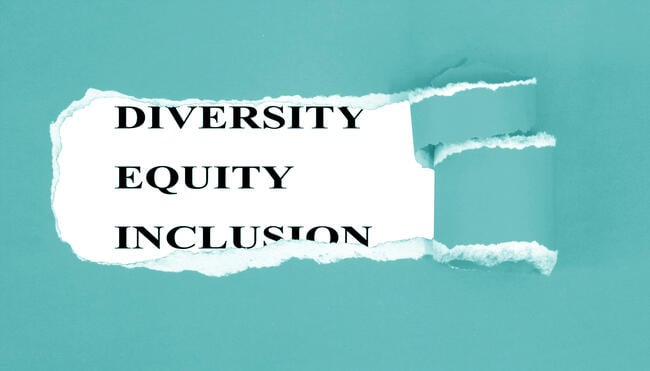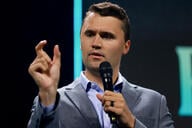You have /5 articles left.
Sign up for a free account or log in.

studio2013/iStock/Getty Images Plus
In a recent Inside Higher Ed opinion piece, “A Call for Moderate Voices on DEI,” Chris Cooper describes a chilling atmosphere surrounding diversity, equity and inclusion efforts in higher education. He calls for those with “moderate” perspectives to push back against what he sees as ideologically extreme approaches. To illustrate his point, he quotes a 2020 campus pledge by faculty at the University of Cincinnati, describing the prospect of signing what he called a “public loyalty pledge” as “dystopian” and “counterproductive.”
I am the person who wrote that pledge.
It was summer 2020, during the height of the Black Lives Matter movement. At the time, I was co-chair of an equity and inclusion committee at UC, where Cooper and I both serve as faculty. Though my academic training is in biology, my role since 2016 had been developing programs to broaden participation in undergraduate research. That role led me to ask hard questions like: What limits participation? Why are certain groups persistently underrepresented?
My need to understand led me to literature, lectures, discussion and self-examination. I began to realize how dominant cultural norms—including those performed by people like me—can unintentionally break trust and create psychologically unsafe spaces for people in marginalized groups. I have been working to become a more consistent and accountable ally since.
So when nudged in 2020 to write a solidarity statement, I wanted more than gesture. I wanted action. The “Pledge to Dismantle White Supremacy Within Ourselves and Our Institutions” was the result. Its urgent tone reflected the moment: It was a call to name realities and organize around accountability.
At that time, UC—like many institutions—was reckoning with a long history of unhealed racial harm. Since the formation of a Black student organization, the Quadres, in the 1930s, Black students, staff and faculty have called for fair treatment, safe spaces and representation at UC. In 2015, the killing of Samuel DuBose by a UC police officer ignited actions led by UC’s Irate8, whose Let Us Help You SEE video increased awareness of institutional harms as well as achievements by students who fought for change. While individual allyship with Black students and colleagues has long existed, organized collaboration was lacking in 2020. The pledge—written with significant input from diverse leaders—sought to change that.
Early signers formed UC’s Coalition for Anti-Racist Action (CARA), which I co-chaired until earlier this year. Each year, we revisited and revised our pledge. In 2021, it became a “Pledge to Organize for Racial Equity.” Today it is a “member agreement” outlining our values, intersectional lens and accountability practices. Our evolution reflects learning and recognition that while naming harm is critical, so too is orienting toward solutions.
In hindsight, I can see how the original pledge struck some as divisive. The phrase “white supremacy”—used to describe beliefs and systems that uphold racial hierarchy—was jarring to some. One colleague told me she felt enraged when she saw it. For her, the term signified hate groups. But after reflection and dialogue, she came to understand the term as we in CARA understand it: not as an accusation, but as the root cause of systemic racism. And we were all ready to end racism, right? I still wrestle with why, for some, acknowledging white supremacy is a necessary step toward healing and transformation, and for others it is a red line.
Cooper argues such acknowledgments do more harm than good, describing the 2020 pledge as “more like an empty confession of guilt than a productive call to action.” Yet the language he critiques reflects documented history. Our nation was founded on white supremacist values —via genocide and slavery. UC itself was built on land bequeathed to the city to establish colleges “for the education of white Boys and Girls.” It is not a fringe claim to point out that white people continue to hold disproportionate advantages in academia and everyday life: These are well-substantiated facts.
Cooper writes that he supports “moderate” DEI initiatives, such as tutoring, mental health counseling and accessibility services. I agree these are essential services. But they do not address racial inequities. This raises a deeper question: What do DEI moderates stand for when it comes to race-based inequities? If naming white supremacy is too “extreme,” what is the moderate approach to understanding historical and present-day racial injustice? What structural solutions do moderates propose for achieving racial equity?
These are genuine questions, not rhetorical ones. At a time when DEI has come under sustained attack by those who would paint it as extreme, I’m eager to understand how those who identify as moderates conceptualize harm, accountability and change.
Like Cooper, I believe in “brave, diverse voices” and in pursuing “truth for the sake of human flourishing.” But if moderation means avoiding discomfort or prioritizing neutrality over justice, it risks becoming a mask for inaction. If instead moderation means discernment, humility and courage to stay in tough conversations, then I welcome it. I am here for it.
CARA has moved its work off campus in response to Ohio’s anti-DEI legislation. While the legislation forced us to abandon our plans to continue a racial healing and allyship program piloted last year with internal funding, we continue to do what we can without the benefit of institutional affiliation or money. This summer we collected signatures for a referendum to pause Ohio’s anti-DEI legislation (the effort failed), attended events and demonstrations, and continued relationship-building and information-sharing within our group and the broader community. This fall, we will attend events hosted by student groups that were supported by identity centers that no longer exist at UC and host at least one event of our own. In addition, we will recognize End Polite Silence Day for the fourth consecutive year, this time with an interactive open-mike event at a local establishment.
As long as we are here, we will remain committed to dialogue, coalition-building and principled action. I hope Cooper and other self-described DEI moderates will engage directly with those of us doing this work—not just to critique from afar, but to join in the difficult, necessary task of co-creating a more equitable future.



